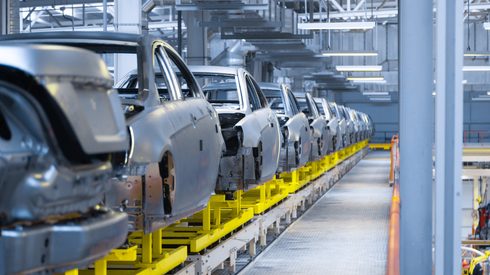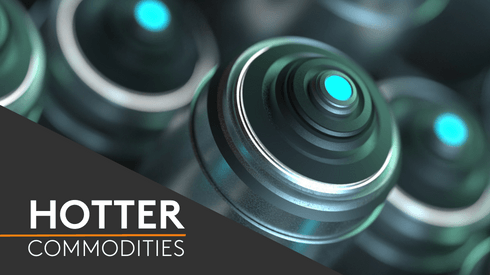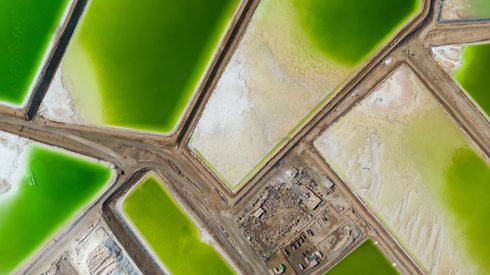Small volumes of trial cargoes of black mass are already being imported into China but only certain high-quality material is allowed under the scheme, a recycler source in China’s Jiangxi province told Fastmarkets at the Battery Recycling Summit (BRS) held in Guangzhou from June 3-4.
“The requirement is that material must be from cathodes, and contents of nickel, cobalt, and manganese need to be larger than 50% in total,” the recycler said.
“Some Chinese companies, which have been in the [battery recycling] industry for years, have already successfully imported several cargoes of black powder from cathodes, and the customs clearing processes were quite smooth. But there are still no clear harmonized standard (HS) codes for black mass or black powder, so it is hard to track the volumes,” a Singapore-based trading source said.
South Korean traders also shared their view on the issue, with considerable concern across the Korean market that easier import regulations for China could make black mass harder to obtain and more expensive for consumers in the east Asian nation.
“We are hearing discussions in the market that the Chinese government may designate black mass as a ‘product’. This is probably connected to them considering loosening the restrictions on black mass imports,” a Korean trader said.
“I don’t know if [an official relaxation to import rules] was agreed but China is gradually opening its doors to more black mass [imports],” a second Korean trader said.
Hazardous waste
Black mass is currently classified as a hazardous waste material in China and the government has banned its imports and exports since 2018, according to the Singapore-based trading source.
Around 24 tonnes of nickel–cobalt–manganese (NCM) black mass was forfeited by the Shenzhen Bay customs in October 2023. The batch was initially declared as nickel cobalt manganese hydroxide but turned out to be powder from shredding waste NCM batteries, according to an official WeChat announcement by China Customs.
Some Southeast Asian companies set up in nations such as Thailand, Malaysia and the Philippines have been known to provide some level of processing to black mass in order to remove certain elements such as lead, cadmium and lithium, before shipping the material to China under HS codes for mixed hydroxide precipitate (MHP), several sources have told Fastmarkets.
Demand for black mass and recycled MHP are on the rise in China, leading to greater competition for black mass from Southeast Asian and Chinese buyers and supporting payables, sources told Fastmarkets this week, with further increases expected if China starts freely importing material.
“The availability of good quality [black mass] is limited in the market. We have to pay higher to compete with others for in-specification materials. If China enters the global market, the competition is going to be much fiercer,” a Korean recycler source said.
Black mass availability challenges were causing a push for Asian consumers to try and nail down more supply on a contract basis in early May, sources told Fastmarkets.
The second Korean source said that higher demand from China and Southeast Asian buyers was particularly driving up payables for the high-cobalt lithium cobalt oxide (LCO) black mass in the previous week, according to the second Korean trader source.
LCO black mass is bought by most Korean recyclers at lower payables than NCM black mass because most consumers wish to produce recycled nickel for use in new cathodes, sources told Fastmarkets.
Fastmarkets’ assessment of the black mass, LCO, payable indicator, cobalt, cif South Korea, % payable Fastmarkets’ standard-grade cobalt price (low-end), was 62-67% on June 19, widening up from 62-65% from a week earlier.
The weekly assessment of the black mass, LCO, payable indicator, lithium, cif South Korea, % payable Fastmarkets’ lithium carbonate 99.5% Li2CO3 min, battery grade, spot prices, cif China, Japan & Korea, was 3-5% on Wednesday, unchanged from a week earlier.
Recycled content targets
China’s moves to consider relaxing imports of black mass come ahead of ambitious recycled content targets in the country’s battery industry, meaning recyclers in China must raise the volumes of black mass they are procuring, sources told Fastmarkets.
“It is important that we follow the global trend. The EU, US and Japan are all carrying out regulations about the minimum percentage of recycled materials to be used in battery production. The Chinese government also requires the supply of recycled metals to reach 24% by 2025,” Chinese recycler Jin Sheng New Energy’s strategic development manager Linlin Hu said at the BRS.
Participants at the BRS Guangzhou agreed that overcapacity remains a major problem in the Chinese battery recycling industry.
“In 2024, capacities of hydrometallurgical plants for lithium-ion battery recycling are approximately 2.86 million tonnes per year in China and shredding capacity is around 2.08 million tonnes per year,” Tianqi Jintai Pavilion’s deputy general manager Yonghui Luo said in his speech at the BRS.
“But according to the volume forecast of retired electric vehicle (EV) batteries for the entire 2024 in the domestic market, the capacity utilization rate would be only 20%,” Luo added.
“Operation rates for black mass buyers in China are low. Cell makers were turning off their plants because of a dip in EV sales. This led to less cell scrap in the market, which meant that nobody could procure as much black mass as they wanted,” the second Korean trader said.
Get more insights and intelligence to understand the future of the li-ion battery recycling market in our dedicated battery recycling hub.






